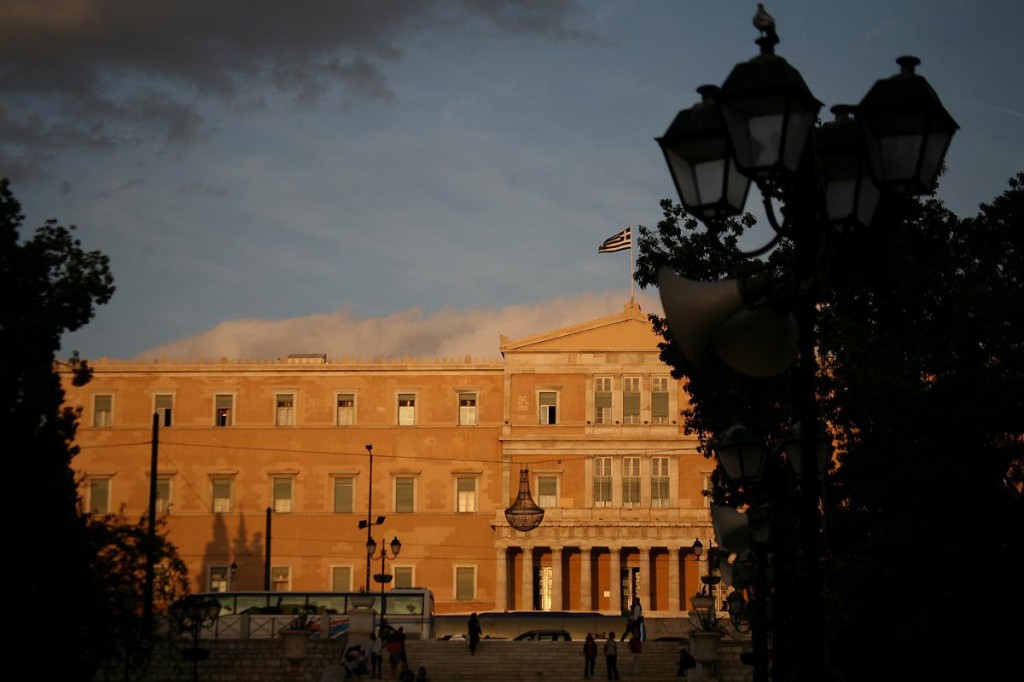There is a new term going around about the Greek financial crisis, ‘debt bondage’. Which I believe could be a real thing. But not in the sense that they intend it. Their intended connotation is that they were enslaved by the evil, um, producers in Germany and now they must be ‘freed’ by not having to pay for the eternal orgy of dissipation they have been enjoying.
Real debt bondage is what was known as usury. Today the term is used to describe loaning money at high interest rates. Which, I’m not even sure is illegal anymore. Usury was originally when you loaned money on an unproductive loan. If you loaned money to someone for something that would not produce increase, or the possibility of making them money, that was usury. If you loaned someone money to buy seeds to plant in a field, it is still a risk they might not get back more than they put in. But there is at least a chance to increase their seeds, to turn them into more seeds than they started with. And with some of that increase they can pay you back with interest. You have invested in their endeavor and made some money for risking your money, your capital. They have made some money by their hard work.
An unproductive loan is when you loan someone money to buy a new flatscreen. There is no chance they will make money by watching TV, it’s just something they want. And not only are they paying for it, they are paying you interest, they are losing money. This was viewed as usury, or debt slavery because you were exploiting the person’s desires, to make money for yourself, without concern for the fact that you left them worse off.
This was the source of some of the strife between Christendom and the Jews, over the past 2000 years. The Catholic church always held that usury was wrong and they forbade it. Yet the Jews living amongst them were free to loan money any way they wanted. This lead to a foreign, different people living amongst the various nationalities of Europe and then becoming quite wealthy, some by usury. Which didn’t sit well with these people after a while. Shakespeare’s Merchant of Venice explores this conflict. How can cold dead metal coins reproduce?
“for when did friendship take a breed for barren metal of his friend?”
Belloc wrote the Servile State and Chesterton the Utopia of Usurers exploring the issue of Usury in their modern world. They were both Catholics, and since the Reformation broke the hold of the Catholic Church over the people of Europe, usury laws became more and more lax. The nature of banks becoming more and more centralized a century ago, led Belloc to conclude that the majority of the people would soon be wage slaves. They would be forced to work to payback all the social programs they had consumed. He didn’t foresee that we wouldn’t actually pay for anything, but that we would just rack up insane amounts of debt. I recommend both books.
But eventually reality catches up to you. When you continue to consume without producing, at some point the system collapeses This is where Greece is at. They continue to borrow money with no hope of paying it back, because the people don’t want to work. They want their socialist welfare utopia to continue forever without ever having to pay for it. In short they want the Germans to produce and give it to them, whilst they lounge. And then they have the audacity to blame everyone else for their laziness.
I suppose there is something to be said for that. There are some people who can’t handle money, and even whole countries. Man in general was put on this earth with the need for food, and the command not to steal. He works for his living or perish. This isn’t harsh slavery, it’s reality. All our fuzzy insane economic theories just obscure this simple truth. We try to outsmart reality instead of using responsible safeguards to keep us on the correct path. Laws which prevent men from stealing the fruit of others or force men to work for what they have are good. And so I think usury laws were good. They prevent people from the illusion that they can get something for nothing. ON the other hand these dreamer create an entity, the government which merely redistributes, but can not create. And they make it seem to do what it can’t. These false promises simply entangle the free man who is no longer simply working for what he eats. When he has had enough he has leisure. Under Usury, he is always behind always playing catch-up, because he is always paying interest, on interest, on interest.
Usury laws were similar to other laws like those against gambling, which also prevented people from the illusion that they could win big money for no effort. And now our governments charged with preventing evil, are it’s greatest peddler. State lotteries and easy money entice many. We are not far behind Greece. It’s estimated that 42% of us are not producing anything. But we are all consuming. This can’t go on for long. So instead of trying to find an easy buck, put in more than you take out. Or as Scripture says, do your work as unto the Lord (Ephesians 6:7). Which is one of the glorious doctrines of Protestantism that we forget today, though it made our nation so prosperous in the first place.

